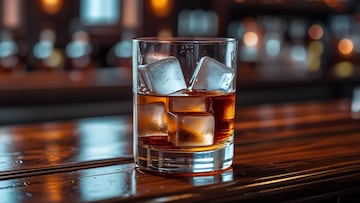From corn to cask: The fascinating history behind Kentucky’s bourbon legacy
There’s a saying that goes “you can make bourbon anywhere in the country, but if it’s not Kentucky bourbon, it’s not bourbon.”

The official, literally, spirit of the United States is bourbon. On 4 May 1964, the US Congress declared in a joint resolution that bourbon whiskey is “a distinctive product of the United States...unlike any other type of alcoholic beverage.”
On 14 June, we celebrate National Bourbon Day. And while “you can make bourbon anywhere in the country,” Wild Turkey master distiller Jimmy Russell told History, “if it’s not Kentucky bourbon, it’s not bourbon.” So what makes the Bluegrass State such a special place for the spirit like no other.
The roots of Kentucky’s bourbon legacy
The history of bourbon is as old as the United States, starting when the first European settlers with stills in tow arrived at Harrodsburg in 1774. Two years later, the Corn Patch and Cabin Rights Act was passed helping accelerate the settlement in Virginia’s Kentucky County by offering 400 acres to any settlers who built cabins and planted corn.
Those early Kentuckians realized that the fertile soil was perfect for growing corn and it became the dominate ingredient in the mash instead of rye. The other main ingredient was the water, which is naturally filtered by the blue limestone deposits underground.
The limestone filters out unwanted minerals like hard iron but dissolves into the water sweet-tasting calcium and magnesium. This was perfect for making the type of whiskey that would become bourbon.
The climate in the state also played a part in making it an ideal place for curing the spirit. The barrels, once they’ve been filled, are left to age in non-environmentally controlled bourbon rickhouses.
“You need the hot summers and cold winters so that the wood can breathe and the whiskey can move in and out of it,” explained Russell. The portion that evaporates and is lost to that breathing is called the “Angel’s Share”.
The American Revolution also played its part. After the war the “triangle trade” with Great Britain that brought rum, the most popular drink at the time, began to decline. Furthermore, heavy import levies were placed on the spirit distilled from molasses as well as its raw ingredient.
New markets and bourbon gets its name
In 1803, the United States acquired vast tracks of land west of the Mississippi as part of the Louisiana Purchase. Bringing the waterway fulling under the control of the US also made trading Kentucky whiskey down river easier to the Port of New Orleans.
The Big Easy would end up becoming the destination for about 95% of the state’s production. According to Kentucky Bourbon Trail, the first use of Bourbon may have been as early as 1821, but the drink was still generally referred to as whiskey along with perhaps the name of the closest town attached to it until 1840.
The exact origin of calling Kentucky whiskey bourbon is as hazy as your mind after spending too much time amongst the Angel’s Share in a rickhouse but there are a couple theories.
As with naming the type of whiskey after a specific place, in 1840 Jacob Spears began labeling his “Bourbon whiskey” after the county where he resided, which was named after the French royal family that had aided the US in its fight for independence.
Another is that the main place people would, and many still do, wet their whistle with a glass of whiskey in New Orleans was Bourbon Street. Since the Kentucky spirit had a hold on the market, the street may have lent its name to the whiskey made in the state.
Either way, the name stuck and there is nothing quite like it.
Get your game on! Whether you’re into NFL touchdowns, NBA buzzer-beaters, world-class soccer goals, or MLB home runs, our app has it all.
Dive into live coverage, expert insights, breaking news, exclusive videos, and more – plus, stay updated on the latest in current affairs and entertainment. Download now for all-access coverage, right at your fingertips – anytime, anywhere.

Complete your personal details to comment
Your opinion will be published with first and last names